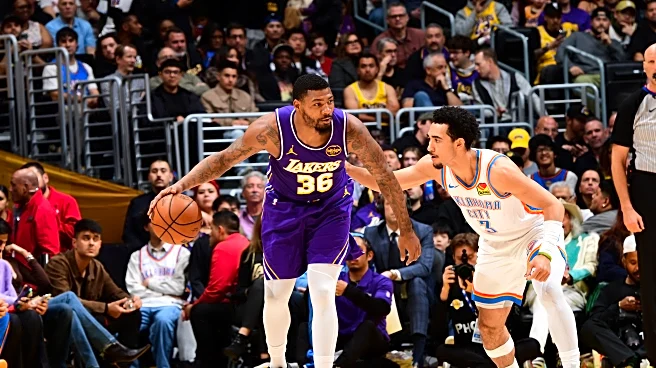Rapid Read • 8 min read
The World Health Organization (WHO) plays a crucial role in global health governance by establishing, monitoring, and enforcing international norms and standards. WHO coordinates multiple actors towards common health goals, addressing challenges posed by globalization such as the spread of infectious diseases and health inequalities. The organization is involved in developing global norms like the International Code of Marketing of Breast-milk Substitutes and the Framework Convention on Tobacco Control. WHO's leadership is essential in integrating and coordinating the global health agenda, but its effectiveness could be hampered by budget reallocations from core global functions.
AD
WHO's role is vital in ensuring global health security and addressing health inequalities exacerbated by globalization. Its leadership in setting international health standards and coordinating global health efforts impacts public health policies worldwide. The organization's ability to maintain its core functions amidst budgetary constraints is crucial for effective global health governance. WHO's work influences trade debates, human rights contexts, and public-private partnerships, affecting health outcomes globally. The organization's capacity to adapt to changing global health dynamics is essential for addressing emerging health threats and ensuring equitable health access.
Decisions regarding WHO's budget and priorities will significantly impact its future role in global health governance. The organization faces tensions about budget shifts, with concerns about the impact on global activities like advocacy, surveillance, and research. WHO's leadership must navigate these challenges to maintain its core functions and coordinate with key global health players. The organization's ability to adapt its strategies and strengthen its technical capacity will be crucial in addressing future health challenges and ensuring effective global health governance.
WHO's evolving role in global health governance highlights the need for strong leadership and coordination among international health actors. The organization's ability to address global health issues requires investments in technical expertise and collaboration with member states. WHO's focus on normative functions and global advocacy is essential for promoting health equity and addressing health disparities. The organization's efforts to reform and update global health regulations will be critical in ensuring effective responses to infectious disease threats and advancing global health security.
AD
More Stories You Might Enjoy











